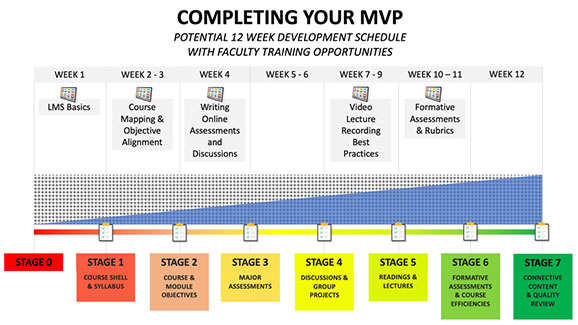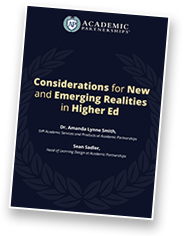Part One of Three: The MVP
In this first part of our white paper on the rapidly changing landscape of higher education, we focus on the minimum viable product (MVP) as an anchor for a practical approach for beginning online equivalency planning.

Summary of key findings:
As we traverse the summer of 2020, universities are hard at work setting plans for remote teaching and online equivalency for the fall. Administrators, traditional on-campus faculty, and typically understaffed instructional design teams are scrambling to stand up variations of online learning, almost overnight. And campus faculty—whose craft is subject matter expertise, not instructional design or online teaching and learning—teeter across a foreign landscape of learning management systems, course shells and third-party applications in the name of equitable access.
As administrators look for where to begin in this unmarked journey, they might:
- aim to define the MVP and/or minimum expectations of the faculty-designer based on the college’s contingency preparedness plans, while based also on the university’s goals for longer-term growth; or
- facilitate tiered training that helps faculty design and teach online courses in alignment with the university’s goals related to contingency preparedness and beyond.
Designed deliberately, with clear definitions and strategies that support the goals of the university, one modality lends itself to the next, offering in turn the opportunity to reach larger segments of non-traditional, degree-seeking, college-ready students. Academic Partnerships’ AP Off Campus and practical approach to the MVP strengthens campus-wide online equivalency implementations that in turn assist university partners in expanding access to top quality, affordable, and workforce-relevant education.
